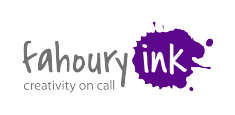As easy as it may seem to shoot off some quick direction to your copywriter of choice and receive an on-target, well-written piece of content in return, the truth is that great copy is a little harder to come by. You can go a long way toward assuring a successful project by giving that copywriter the information he or she needs to craft effective marketing prose.
Here are nine questions you should be prepared to answer for your writer when it’s time to launch your next marketing content development effort:
- What are we really selling? Answering this classic sales question helps you and your writer uncover a story to be told rather than simply a service or product to be sold. Telling a story makes it much easier to connect with your target…and for your audience to feel the love in return.
- Who IS the audience for this project? Of course, your copywriter should know whether a project is B2B or B2C. But you should also differentiate between acquisition efforts vs. up- selling existing customers, and whether you’re speaking to a niche audience or a general one. These distinctions will affect the way your content writer approaches the project — so be clear about to whom you’re talking and their level of familiarity with your organization and product/service.
- What source material exists? At the very least, you should hand over a creative brief with basic direction and goals. Beyond the brief, try to gather as much source information as possible for your writer — internal research, sales letters, the previous version if you’re updating existing content, competitors’ websites, and any industry background if appropriate.
- What’s your unique selling proposition? Your copywriter may know who you are and what you do, but what makes you stand out from the crowd? Give some thought to your competitive strengths and weaknesses, and your natural position in the market — are you generally perceived as the established thought leader, the young upstart, the value alternative or the premium blend?
- What tone is appropriate for this audience? Every writer has a natural style, but seasoned scribes can match the “voice” required for your particular project. A B2B piece may need professional jargon with a lot of research to back up your claims, while a consumer email might take a more emotional approach using accessible, casual language. The tone of the copy is often the most influential aspect of your marketing effort, so sharing the details of your brand voice is key.
- What are the key features and benefits of your product/service? Although features and benefits are often confused, they’re really very different. Features are technical or functional qualities, while benefits are what those features do for the user. For example, a computer may have a 3.2 GHz processing speed, but the benefit is that it can cut your payroll processing time in half. Since selling is all about the customer, you can see how benefit statements are much more compelling than bland, static product features.
- What objections might the content face? You’ve most likely heard and had to overcome common obstacles to making a sale. Acknowledging them head-on makes you more trustworthy, and your content that much more effective. Don’t assume your writer knows the hurdles his or her effort might face — be as specific as you can on any potential pushback.
- How will this content be used? The structure of effective content will vary depending on whether the piece will be downloaded or read on-screen, used as a direct mail piece or a leave-behind, or if the content is part of a larger whole, like a media kit or online campaign.
- What’s the ultimate goal? Knowing your end game will help your writer craft an appropriate call to action. Should this piece generate direct sales or simply qualify new leads? Open the door to future communication with an “opt in” or reinforce your brand positioning? Drive calls to a toll-free number or traffic to a landing page?
By taking some time to consider these nine questions — and sharing detailed answers with your writer — you’ll be well on your way to content that will perform to your expectations, and a solid relationship with your copywriter built on the best kind of teamwork.

